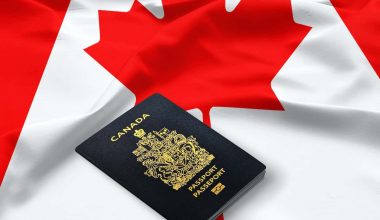Basically, to be an international student in Iceland, you need to show that you have the academic skills and money to pay for your studies. You also need to understand some more things that are required of you to get an Iceland student visa.
Iceland is a country that welcomes international students, but there are certain requirements that you’ll need to meet in order to be eligible for a student visa.
When it comes to the application process, you’ll need to gather some documents and submit them to the relevant authorities. This might include things like proof of acceptance to a university, a letter from your sponsor if you’re receiving financial support and evidence of your financial resources.
In this article, we will tell you everything you need to know, from the application fees to the requirements and eligibility.
Table of contents
- Is Iceland expensive for students?
- Iceland Student Visa Overview
- Iceland student visa vs student work permit Iceland
- Iceland student visa success rate
- What are the requirements to study in Iceland?
- Iceland student visa requirements
- How much is the Iceland student visa fee?
- How long does Iceland student visa take?
- Iceland student visa application process
- Can international students work in Iceland while studying?
- FAQs
- Conclusion
- References
- Recommendations
Is Iceland expensive for students?
Iceland can be pricey for students, especially if you’re planning to live in Reykjavík. The cost of living is high, so you should consider your budget carefully. You’ll need around ISK 224,333 (approximately) per month to cover your expenses in Reykjavík.
That’s not a small change! Make sure you understand the financial demands before you pack your bags for Iceland.
Some of the expenses you can expect in Iceland include:
- Rent: The cost of renting an apartment or a room can be high, especially in Reykjavík. You may be able to find cheaper options outside of the city, though.
- Food: The cost of food in Iceland is also higher than in many other countries. You’ll want to budget for groceries and eating out.
- Transportation: Public transportation is good in Iceland, but it’s not free. You’ll want to budget for bus and train fares.
Read: How to Get Germany Student Visa from Nigeria | Full Guide to Apply
Iceland Student Visa Overview
If you’re a foreign student planning to study and live in Iceland for more than 3 months, you’ll need to apply for a student visa (also called a D visa). This visa is usually granted for three months but can also be granted for up to twelve months.
Once you arrive in Iceland, you’ll need to apply for a residence permit within the first 3 months of your arrival. Your residence permit will be valid for one year.
As Iceland is a member of the Schengen Area, holders of a D visa are allowed to travel freely within the Schengen Area countries (except the country that issued the visa) for a maximum of 90 days in any 180 days. However, this is only permitted if your visa is still valid.
So, if you’re granted a student visa to study in Iceland, you’ll be able to travel within the Schengen Area without the need for an additional visa, as long as you don’t exceed the 90-day limit.
Iceland student visa vs student work permit Iceland
No, a student visa and a student work permit in Iceland are not the same. A student visa allows international students to study at an Icelandic educational institution.
It does not permit the holder to work during their stay unless they receive special authorization from the Directorate of Immigration.
A student work permit, on the other hand, allows international students to take on part-time work in Iceland while they are studying. To obtain a student work permit, the student must first be enrolled in an Icelandic educational institution and meet certain eligibility requirements.
Iceland student visa success rate
At this time, there is no readily available data or information on the specific success rate of student visa applications to Iceland for the current year. However, we will update this information when verified data becomes available.
Despite the lack of recent data, it’s worth noting that University World News reported a decline in student visa application approval rates for international students from well over 90% to 82% for educational programs, and 70% for vocational education for the six months to December 2023.
The decline in approval rates may indicate a more stringent visa application process, which underscores the importance of submitting a thorough and well-prepared application.
What are the requirements to study in Iceland?
Here’s what you need to study in Iceland:
- Fill out the online application form: This is usually pretty straightforward. Make sure to fill out all the required information and check for any errors.
- Send your CV: This should include your educational history and any relevant work experience. If you’re applying for graduate studies, you may need to include more details and academic achievements.
- Write a letter of motivation: This is your chance to tell the school why you want to study in Iceland and what you hope to achieve.
- Send transcripts from your previous education: You’ll need to provide both electronic copies and physical copies of your transcripts. Make sure to send them well before the application deadline to avoid any delays.
- Get letters of recommendation: Try to get recommendations from people who can speak to your academic abilities and personal qualities.
- Take an English language test: Depending on the school, you may need to take a test like IELTS or TOEFL to prove your proficiency in English.
Once you’ve submitted all the required documents, the school will review your application and make a decision. If you’re accepted, congratulations! Keep your acceptance letter, as you’ll need it when applying for your student visa Iceland.
Iceland student visa requirements
If you’re not from the EU, Norway, Liechtenstein, or Switzerland, you’ll likely need a visa to study in Iceland. Here’s what you’ll need:
- Your passport: Your passport should be in good condition and valid for at least six months after your planned departure from Iceland. This will ensure you have a valid document throughout your stay.
- Two photos of yourself: These should be passport-sized and taken within the last six months. They should be a clear representation of your current appearance.
- A completed application form: This form is usually found on the official website of the Icelandic Immigration Authorities. Make sure to complete it accurately and honestly.
- Proof of payment of the application fee: This is the fee you need to pay in order to submit your application. It’s ISK 15,000 (about US$120).
- Proof of acceptance to a program: You’ll need to provide proof that you’ve been accepted to a school or university in Iceland. This could be a letter of acceptance or some other form of documentation.
- You should be of good character and health.
- You need a valid travel insurance covering the entire period of your studies in Iceland.
- Clean criminal record: You’ll need to provide proof that you have a clean criminal record. This may involve getting a police clearance certificate or other documentation from your home country.
- Health insurance: You’ll need to provide proof of health insurance that covers up to 2,000,000 ISK (about US$16,000).
- Bank statements: You’ll need to provide proof that you have enough money to support yourself during your stay in Iceland. This could be in the form of bank statements or other financial documents.
When you’re in Iceland, you’ll need to get a residence permit. You can apply for this at the Directorate of Immigration in Reykjavik. This will let you stay in Iceland for the duration of your studies, and it will also allow you to work up to 15 hours a week.
If you want to travel around Europe while you’re in Iceland, you can do so if you have a Schengen visa. This visa is issued by the country that you’ll enter first when you travel. Since Iceland is a Schengen country, you’ll need to enter Europe through Iceland.
Also, see: Ireland Student Visa Requirements for Nigerians | Easy Steps to Apply
What proof of funds is required for Iceland student visa?
The proof of funds is one of the most important things when it comes to Iceland student visa requirements for Nigerian citizens or Iceland student visa requirements for international students generally.
When you apply for an Iceland student visa, you’ll need to show that you have enough money to support yourself during your studies. This means that you’ll need to provide copies of documents that show you have access to a certain amount of money.
Specifically, you’ll need to prove that you have access to ISK 180, 550 (about EUR 1,434) per month or the total amount of money required for your scholarship. This could be in the form of bank statements or other financial documents.
Showing proof of financial means is an important part of the Iceland student visa application process. The reason for this is to ensure that you’ll be able to support yourself during your studies, without relying on government assistance or working too many hours.
How much bank balance is required for Iceland student visa?
To obtain a student visa for Iceland, applicants must show proof of sufficient funds to cover their living expenses during their stay. This amount is usually around ISK 180,550 or EUR 1,434 per month.
This money can come from a scholarship or personal savings. In addition, students must provide proof of travel health insurance, enrollment in an Icelandic educational institution, and secure housing arrangements.
These documents must be submitted in copy form as part of the visa application process.
What documents are required for an Iceland student visa?
When applying for an Iceland student visa, you will need to submit the following documents:
- Payment receipt: This receipt shows that you’ve paid the visa application fee, either online or at a bank. Make sure to clearly state the applicant’s name and their date of birth on the receipt.
- Application form for residence permit: You’ll need to download and fill out this form, stating your planned address in Iceland. If you don’t have an address when you apply, you must notify the authorities within two weeks of your arrival.
- Passport photo: You’ll need to submit a recent passport-sized photo (35 mm x 45 mm).
- Copy of passport: Include a photocopy of your passport, including the personal information page and signature page. Your passport should be valid for at least 90 days after the expiration date of your residence permit.
- University admission certificate or acceptance letter: You’ll need to submit either a certificate of admission from your university or an acceptance letter. Full-time students need to be studying at least 30 ECTS units per term.
- Criminal record certificate: You’ll need to submit a criminal record certificate issued by the highest authority in your country. This certificate must not be older than 12 months when you submit it. If it’s in a language other than English or a Nordic language, you’ll need to get it translated by an authorized translator.
- Health insurance: You’ll need to show proof of health insurance from a company that’s licensed to operate in Iceland. This insurance must cover medical costs of at least ISK 2,000,000 (about US$16,000) and be valid for six months.
- Support documents: These documents show that you have enough money to support yourself during your stay in Iceland. If you’re using financial aid, you can submit a statement or award letter from your home university. If you’re providing a bank statement, make sure the account is in your name and not a joint account.
How much is the Iceland student visa fee?
The fee for an Iceland student visa is ISK 15,000 (about US$120). It’s important to apply for your visa early because the application process can take a while. You’ll need to pay this fee when you apply for your residence permit for studying in Iceland.
When you arrive in Iceland, you might need to get a Kennitala from Registers Iceland. This is a national identification number that you’ll use for official purposes like banking and healthcare.
How long does Iceland student visa take?
The processing time for an Iceland student visa can take anywhere from 6 to 12 weeks after you submit your application. This means it’s important to apply well in advance of when you plan to arrive in Iceland.
To apply for a study visa, you’ll need to find an approved educational institution in Iceland and enroll in a course there. Once you have an acceptance letter from the school, you can start the application process for your visa.
Remember, the visa application process can be lengthy, so it’s important to give yourself plenty of time to gather all the required documents and complete the application.
Iceland student visa application process
Here’s a step-by-step guide to applying for an Iceland student visa:
- Choose a course and school: Find a course at an approved educational institution in Iceland. Contact the school and start the application process.
- Get an acceptance letter: Find out the requirements to get an acceptance or admission letter from the university. Once you have the letter, you can start the visa application process.
- Gather documents: You’ll need several documents for your visa application, including your passport, photos, proof of financial means, health insurance, and more.
- Submit your application: Apply for a student visa on the website of the Icelandic Immigration Authorities. Make sure to include all required documents and pay the application fee.
- Wait for approval: The visa processing time can take up to 12 weeks, so be patient and stay in touch with the authorities if you have any questions or concerns.
- Prepare to move: Once your visa is approved, start planning your move to Iceland. This includes finding housing, purchasing plane tickets, and getting any other travel documents you need.
See Also: Switching From an F-1 Visa to a Green Card
Can international students work in Iceland while studying?
International students in Iceland are allowed to work up to 15 hours per week while they study. However, there are some exceptions. If you’re taking a break from your studies or doing vocational training, you might be able to work more hours.
Working in Iceland can be a great way to make some extra money and gain valuable experience. Plus, it can give you a chance to interact with locals and get a taste of Icelandic culture.
When it comes to finding a job in Iceland, there are a few things to keep in mind:
- Language: Many employers will require you to speak Icelandic, so it might be helpful to take some language classes before you arrive.
- Timing: The busiest time for hiring in Iceland is during the summer months. So if you’re looking for a job, you might have better luck if you apply during this time.
- Types of jobs: Some common jobs for students in Iceland include working in tourism, hospitality, and retail. But there are other options too, like internships or research positions.
FAQs
Upon completing your studies in Iceland, you may be eligible for a residence permit extension for up to three years from your graduation date. This allows graduates to search for employment in their field of study, thus aiding their transition from student to professional within the country.
Although Icelandic is the primary language of instruction at the University of Iceland, several study programmes are taught entirely in English, making them accessible to international students who do not speak Icelandic.
Icelanders are known for their friendly and accommodating nature, making it an ideal destination for international visitors. As long as you show respect for their culture and customs, you’re likely to find that Icelanders are among the most laid-back and welcoming people you’ll ever encounter.
Conclusion
Going to school in Iceland can be an amazing experience! If you want to study there, you’ll need to apply for a student visa. To get one, make sure you meet the requirements and have all the documents you need. It might be a little difficult, but don’t let that stop you from trying. With some hard work and patience, you can make your dream of studying in Iceland come true.
References
- visadb.io – Iceland Student Visa
- internationalstudentinsurance.com – Iceland student Visa Requirements
- apiabroad.com – STUDENT VISA PROCESS FOR ICELAND



